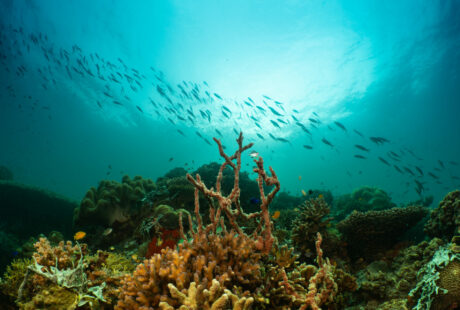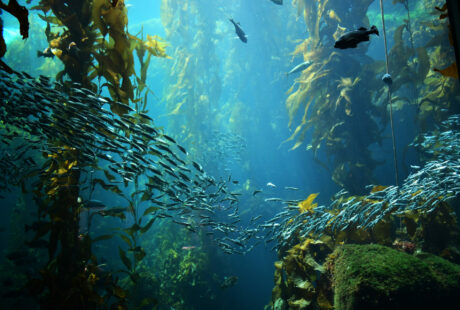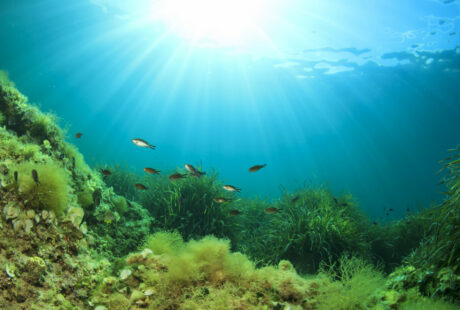The sea is home to a significant proportion of Earth’s biodiversity, yet it is also the location of numerous human activities. This puts unprecedented and unsustainable pressure on the marine environment, dramatically impacting marine biodiversity and ocean resilience. As the world’s biggest maritime territory and with almost half of its population living by the sea, the EU is compelled to set rules to protect marine biodiversity and regulate the activities that take place at sea or which impact the sea.
A new report by Seas At Risk and Surfrider looks at the main actions taken by the EU to protect our seas and ocean over the past five years, focusing on four areas: protecting and restoring nature; tackling marine pollution; limiting the impact of extraction activities; and addressing the climate impact of shipping. The report evaluates the level of ambition of the actions taken and identifies both gaps and opportunities for the EU to step up its efforts in the next mandate.

Below are some key conclusions from the report:
- Credit is due to the EU for safeguarding its powerful nature laws and providing a clearer framework for action under the Marine Directive. These regulations have proved to be key tools in protecting the marine natural world. Yet the failure of Member States to effectively implement the regulations significantly undermines EU efforts to preserve and restore marine biodiversity.
- The EU has begun to take a stronger stance on marine pollution. There has been significant progress in the last year on waste prevention from ships and land-based activities, coupled with the adoption of the European Plastics Strategy and the Directives on Single-Use Plastics and Port Reception Facilities. These represent a solid starting point from which to tackle the global marine waste problem. Under the current mandate, however, the EU has failed to adopt an adequate or holistic strategy to achieve a non-toxic environment and phase out the release of harmful substances into the environment.
- While there have been some efforts to limit the impacts of fishing on marine ecosystems, EU countries have been slow to set sustainable fishing limits to reduce the pressure of overfishing. Nor has the EU imposed a moratorium on offshore drilling and commercial deep-sea mining in vulnerable places, such as Marine Protected Areas, despite a strong call from the European Parliament to do so.
- Finally, the past year has seen positive steps towards sustainable shipping. The International Maritime Organization, at the behest of the EU and its Member States, adopted a strategy to reduce shipping emissions by at least half by 2050 compared to 2008, as well as initiating work to ban the use of heavy fuel oil in the Arctic.
There is an evident lack of a holistic approach to ocean protection, with EU institutions and countries addressing the threats to the marine environment one by one rather than taking a global view of the impact of our lifestyles on the ocean, particularly its resilience, in the face of impending climate breakdown.
Crucially, the failure of national governments to implement ambitious EU policies and legislation is one of the main reasons why the EU is not yet fully delivering on its promise to protect the right of future generations to a clean and healthy marine environment. The lack of political commitment at national level sees every Member State set to fail to achieve clean and healthy seas by 2020, as required by the Marine Directive.
An ambitious approach to ocean protection is of central importance and should be a priority for the next European mandate. The entire EU – the European Commission, the European Parliament and the EU Council, each comprised of all EU countries – has a central role to play in safeguarding the future of our seas and oceans.
All of you EU citizens who care about our seas and coastlines need to make their voices heard by voting in the European elections next week.
Let’s give a Voice to the Ocean in Europe and save #OurBlueLung!
Posted on: 16 May 2019



